Darwin Núñez Receives Five-Game Ban After Copa América Brawl with Colombian Fans
In the latest controversial development in the world of football, Uruguayan striker Darwin Núñez, who also plays for Liverpool, has been handed a five-game suspension by the South American football governing body, CONMEBOL. This decision follows an intense and chaotic brawl that unfolded during the 2024 Copa América semifinal held at Bank of America Stadium in Charlotte, USA. The incident has sent ripples across the football community, raising questions about fan conduct, player responsibility, and security measures at high-stakes sporting events.
The Incident: A Heated Clash
The altercation that led to Núñez's suspension occurred immediately after Uruguay's narrow 1-0 defeat to Colombia. According to reports, the tension erupted when a group of Colombian supporters began harassing the families of Uruguayan players. José María Giménez, a prominent Uruguayan defender, mentioned that the confrontation escalated as the harassment turned into a full-blown altercation. Núñez, along with several of his teammates, decided to confront the fans, leading to a chaotic scene that was captured on various mobile devices and quickly spread on social media.
Video footage showed Núñez scaling the barriers that separated the pitch from the stands. In an emotionally charged moment, he allegedly struck a Colombian fan and tossed a chair into the crowd. The ensuing melee saw players and supporters exchanging punches, beverages, and other objects. Law enforcement officials struggled to regain control, ultimately taking more than ten minutes to restore order and ensure the safety of all involved.
Consequences for Club and Country
The immediate ramifications of Núñez's actions are significant for both his international and club careers. The five-match ban means that Núñez will miss several important fixtures for the Uruguayan national team. Given the competitive nature of international football, his absence could impact Uruguay's performance in upcoming qualifiers and friendlies. Moreover, this incident may have further-reaching consequences.
There are concerns within Liverpool Football Club regarding potential FIFA sanctions that could extend Núñez's suspension to his club career. Liverpool has reportedly sought urgent discussions with both Núñez and the Uruguayan Football Federation to fully understand the circumstances leading to the incident. Such a suspension could interfere with Núñez’s preseason preparations and even affect his availability for the start of the English Premier League season, posing a challenge for the club's campaign strategy.
Reactions and Criticisms
The incident has drawn varied responses from different stakeholders. Marcelo Bielsa, head coach of the Uruguayan national team, openly criticized the tournament organizers and US Soccer for what he described as inadequate security measures. Bielsa argued that better security could have prevented the altercation from escalating to such a degree. He emphasized the need for robust measures to protect not only the players but also their families from hostile fans.
Football pundits and commentators have weighed in on the incident, expressing mixed views on Núñez's actions and the ensuing punishment. Some argue that while Núñez's reaction was extreme, it was provoked by unacceptable fan behavior. Others maintain that players, as professionals, must exhibit self-control regardless of the situation. This debate underscores the complexities involved in managing high emotions in a sports setting.
Broader Implications for Football
The brawl involving Núñez and Colombian fans serves as a stark reminder of the intense passion that often characterizes football rivalries, especially in tournaments as prestigious as the Copa América. Such incidents highlight the thin line between fervor and violence, prompting discussions about how football authorities can better manage these dynamics to ensure the safety and well-being of all participants.
CONMEBOL's stringent action in banning Núñez for five games signals a zero-tolerance policy towards player misconduct. It also serves as a warning to other players about the potential consequences of losing composure in heated situations. The governing body’s decision is likely aimed at setting a precedent to deter similar incidents in future tournaments.
Beyond the disciplinary measures, this incident sheds light on the broader issue of fan behavior at sporting events. Harassment and aggressive conduct by supporters can quickly escalate into violent confrontations, highlighting the need for stringent security protocols and better crowd management. The role of tournament organizers and local authorities in ensuring a safe environment for players, staff, and fans cannot be overstated.
Looking Forward
As the investigation continues and discussions unfold, both Núñez and the football community at large will be closely watching for any further developments. The incident has undoubtedly left a mark on the 2024 Copa América and will be remembered as a defining moment in the tournament's history.
For Darwin Núñez, the path forward involves not only addressing the immediate consequences of his actions but also navigating the broader impact on his career. The Liverpool striker will need to reflect on this experience, possibly seeking guidance and support to ensure such incidents do not recur. His case might also serve as a learning opportunity for other players, highlighting the importance of composure and professionalism even under provocation.
Conclusion
The five-game ban imposed on Darwin Núñez by CONMEBOL following the brawl during the 2024 Copa América semifinal underscores the complexities of managing player and fan interactions in high-tension environments. It brings to the forefront issues of security, player conduct, and the responsibilities of tournament organizers. As the football world continues to evolve, ensuring the safety and integrity of the sport remains a collective responsibility shared by players, fans, and governing bodies alike.
Only time will tell how this incident will influence future protocols and measures within the football community. For now, the focus remains on addressing the immediate fallout and reflecting on the lessons learned from this disruptive event.

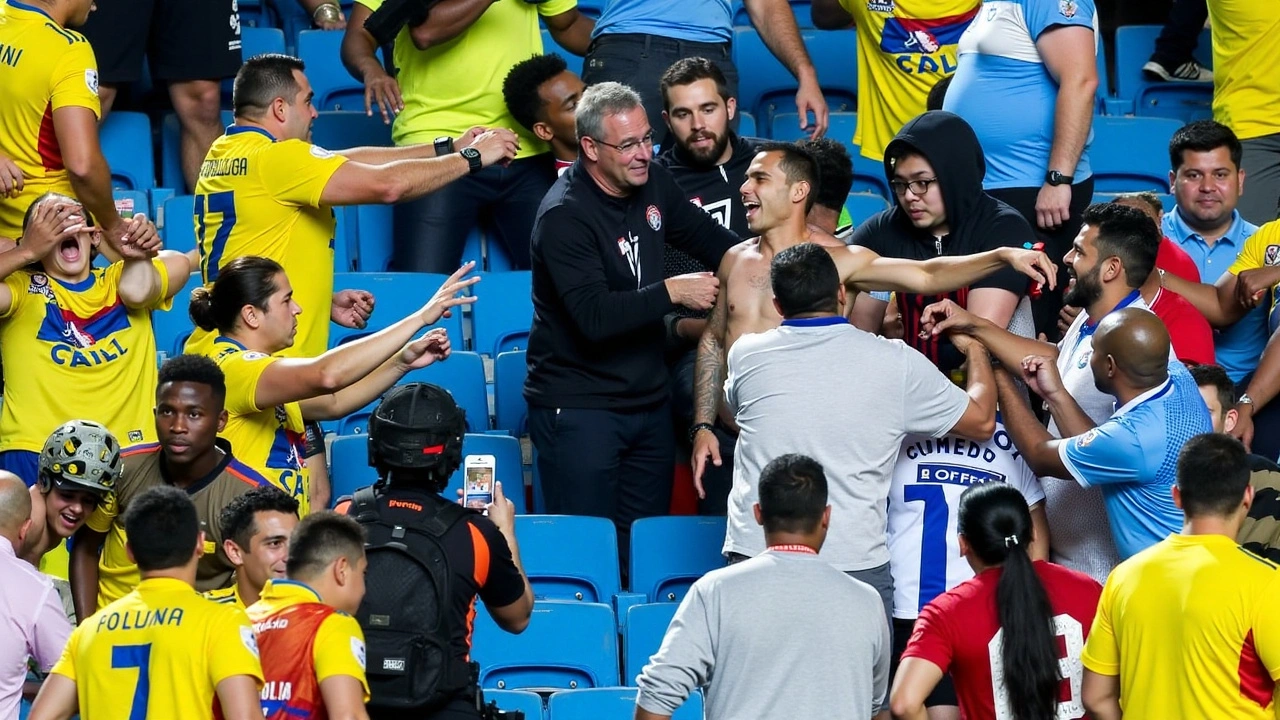
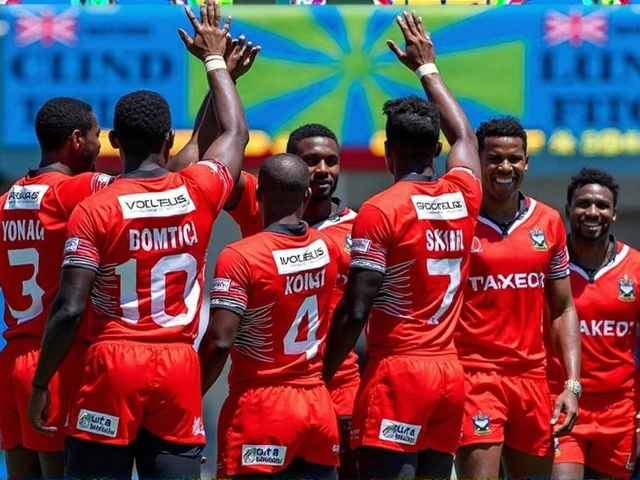
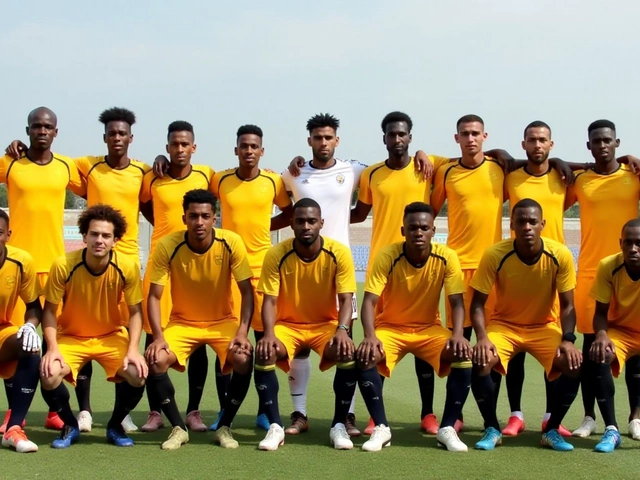
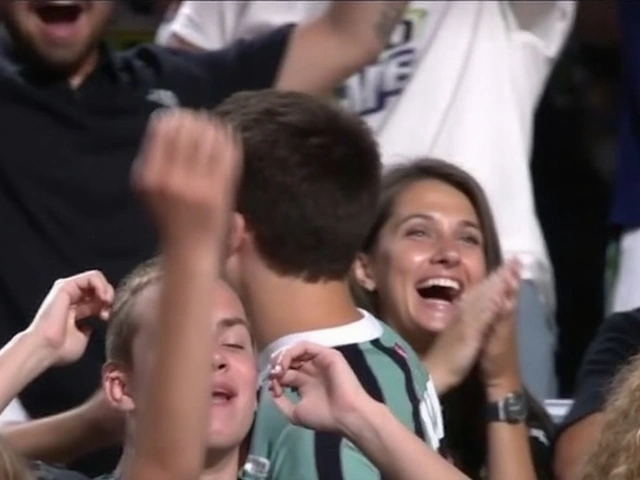
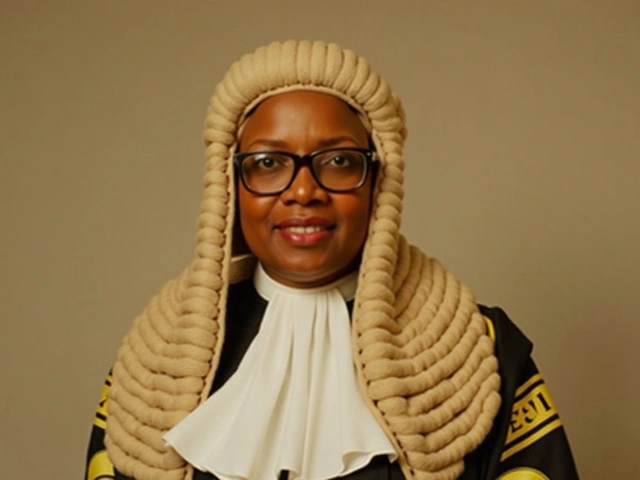
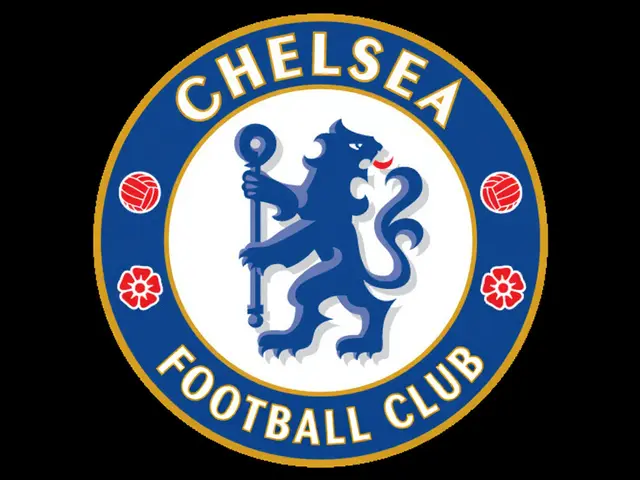
Madison Neal
August 28, 2024 AT 21:36Reading the fallout, I can’t help but feel a deep sense of empathy for the families caught in the crossfire. The incident spotlights glaring gaps in venue risk assessment protocols and the need for tighter bylaw enforcement. While fans’ passion fuels the sport, it shouldn’t become a catalyst for intimidation. It’s essential that clubs and federations integrate robust conflict‑de‑escalation training for players. Ultimately, safeguarding stakeholders must be a top‑priority for CONMEBOL and host‑city security teams.
John Crulz
September 2, 2024 AT 12:43That perspective balances the emotional charge with a pragmatic lens. It’s true that the player‑support ecosystem needs clearer guidelines, especially when provocation surfaces. Integrating a standard operating procedure for post‑match interactions could reduce the odds of escalation. Moreover, fostering open dialogue between fan groups and clubs can pre‑empt hostile encounters. The blend of empathy and structural reform makes for a stronger safety net.
Anita Drake
September 7, 2024 AT 03:50From a cultural standpoint, this episode underscores how intertwined national identity and football can become. When rivalry morphs into aggression, it reflects broader societal tensions that spill onto the pitch. Encouraging mutual respect between fanbases isn’t just about chanting polite slogans; it’s about recognizing each other’s humanity. Educational outreach programs targeting youth supporters could nurture that mindset early on. In the long run, a more inclusive fan culture benefits the sport as a whole.
Eduardo Lopez
September 11, 2024 AT 18:56The drama that unfolded was nothing short of theatrical, but let’s be real – it set a terrible example. Players stepping over the barrier in a fury paints a picture of reckless bravado that fans may idolize. The responsibility to uphold professionalism doesn’t vanish when emotions run high; it intensifies. While the security lapses are glaring, we can’t excuse a forward tossing a chair as a justified act. Integrity in sport must trump momentary vindication.
Nancy Perez de Lezama
September 11, 2024 AT 18:56This kind of behavior is unacceptable.
Matt Heitz
September 16, 2024 AT 10:03The five‑game suspension serves as a stark reminder that personal conduct on the field extends beyond the ninety minutes of play. In my view, the incident reveals a systemic failure to anticipate flashpoints that arise from fan provocation, which should have been mitigated by comprehensive crowd‑control strategies. Moreover, the decision by CONMEBOL signals a willingness to enforce accountability, yet it also raises questions about consistency across similar infractions. It is essential for governing bodies to establish transparent criteria that differentiate between reactive self‑defense and unprovoked aggression. When a player escalates a situation by scaling fences and hurling objects, the line of justification blurs rapidly. The impact of missing a key striker across multiple qualifiers cannot be understated for Uruguay’s tactical planning and competitive edge. Club commitments also suffer; Liverpool must now recalibrate preseason preparations while navigating potential FIFA extensions of the ban. From a broader perspective, the episode accentuates the need for robust mental‑health support structures that equip athletes with de‑escalation tools. The involvement of law enforcement for over ten minutes suggests a lack of pre‑emptive security protocols that could have contained the melee swiftly. Stakeholders, including stadium operators, should invest in advanced surveillance and rapid‑response teams trained for volatile scenarios. Furthermore, fan education campaigns that condemn harassment of players’ families would contribute to cultural change. Historically, similar incidents have prompted rule revisions, and this case could catalyze stricter sanctions for both fans and players alike. Ultimately, preserving the integrity of the sport demands that we confront the underlying triggers of such violence rather than merely penalizing the visible outcomes. By fostering an environment where respect supersedes rivalry, football can continue to thrive as a global unifier.
Susan Mark
September 21, 2024 AT 01:10Spot on about the mental‑health angle; clubs should give players access to conflict‑resolution workshops. Those sessions can teach how to channel frustration without resorting to physical confrontations. It also helps to have clear guidelines from the federation so everyone knows the consequences ahead of time.
Jason Jennings
September 25, 2024 AT 16:16Honestly, this whole thing could've been avoided if the fans just kept their mouths shut and let the players play. The security was lax, the players overreacted, and now we have a mess for everyone.
Diego Vargas
September 25, 2024 AT 16:16Not to sound like a know‑it‑all, but historically, similar flare‑ups have shown that stricter ticketing policies and fan identification reduce these risks dramatically.
Alex Lee
September 30, 2024 AT 07:23Fans need to chill.
Vida Yamini
October 4, 2024 AT 22:30Let’s take a moment to consider the broader narrative this incident feeds into – the romanticised notion of the ‘passionate fan’ that often masks underlying issues of unchecked aggression and entitlement. When we glorify these outbursts, we inadvertently validate a culture where violence becomes an accepted part of the spectacle. It’s crucial that we, as a community, shift our focus from sensational headlines to the systemic reforms needed to protect players, their families, and the integrity of the sport. Implementing comprehensive fan‑education programs, investing in advanced security technologies, and establishing clear, uniformly enforced disciplinary frameworks are essential steps. By doing so, we not only safeguard the immediate participants but also set a precedent for future tournaments to prioritize safety over sensationalism. In short, the responsibility lies with every stakeholder to move beyond the drama and foster an environment where respect, not rivalry, reigns supreme.